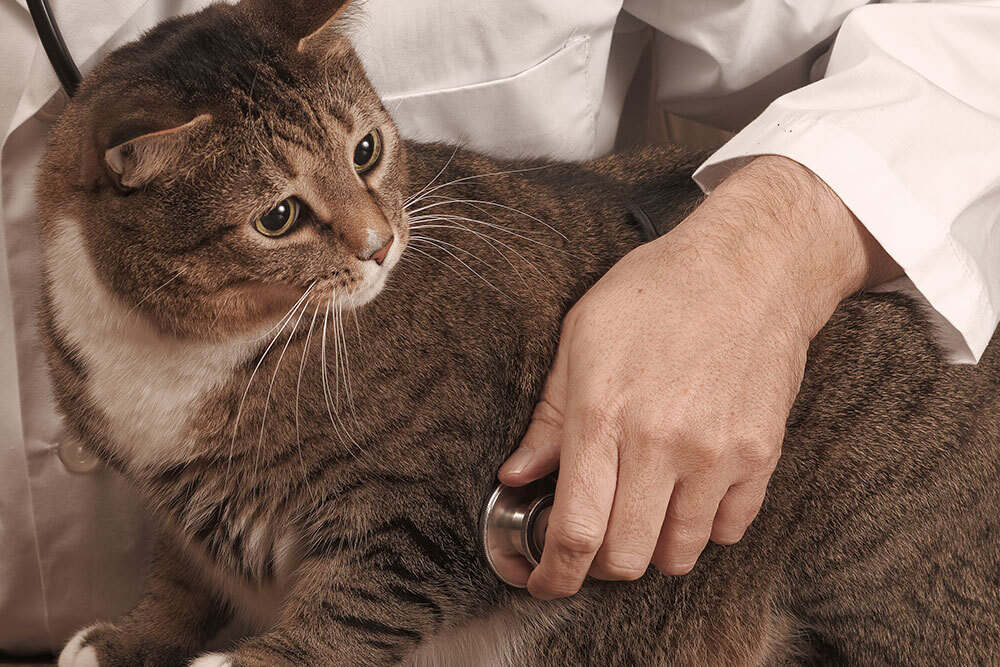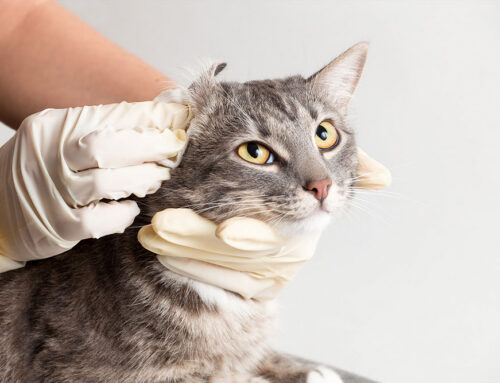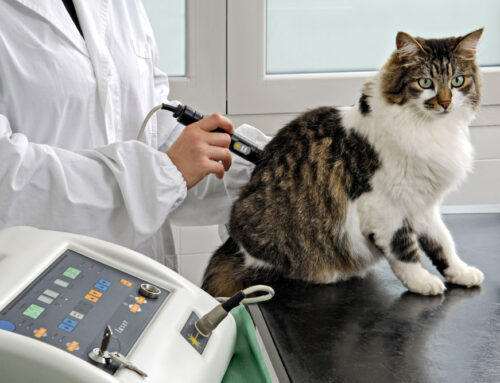Wellness Exams: The Key to a Thriving, Healthy Pet
At Woodland Springs Veterinary Hospital in Fort Worth, Texas, we often hear one question from thoughtful, proactive pet owners: “What can I do to help my pet live a longer, healthier life?” Our answer is simple and powerful: regular wellness exams as a part of a Wellness Plan.
These visits may not seem urgent, especially when your pet appears perfectly healthy, but they’re one of the most effective ways to prevent disease, catch issues early, and support your pet’s long-term well-being. Think of them as your pet’s routine tune-up. Just like you wouldn’t wait for your car to break down before changing the oil, staying proactive with your pet’s health helps keep everything running smoothly.
What Happens During a Wellness Exam
A wellness exam is a full physical assessment and review of your pet’s health history, lifestyle, and risk factors. During your visit, we’ll:
- Check eyes, ears, and teeth for signs of infection, inflammation, or dental disease
- Examine the coat and skin for hair loss, lumps, or signs of fleas and allergies
- Listen to the heart and lungs to detect murmurs or respiratory changes
- Palpate the abdomen to evaluate internal organs
- Assess joints and mobility, especially in aging pets
- Review behavioral or appetite changes since the last visit
We also recommend routine diagnostics like bloodwork, urinalysis, and fecal testing. These tests often catch concerns like diabetes, kidney disease, and infections long before symptoms appear. Here’s why bloodwork is so valuable.
If anything concerning comes up, we may recommend advanced diagnostics such as X-rays or ultrasound for a closer look.
Diseases Wellness Care Can Help Prevent or Detect Early
| Condition | Why It Matters |
| Heartworm Disease | Spread by mosquitoes, this serious and potentially fatal condition is preventable with monthly medication. |
| Lyme Disease | Transmitted by ticks, Lyme can cause joint pain, fever, and long-term complications. |
| Leptospirosis | A bacterial infection found in standing water. It can cause liver and kidney failure and is zoonotic. |
| Flea Allergy Dermatitis | Some pets develop extreme itching and skin infections in response to even a single flea bite. |
| Obesity | Linked to arthritis, diabetes, heart disease, and decreased lifespan. Regular checkups help monitor weight trends. |
| Diabetes | Common in middle-aged and senior pets. Early detection is key to preventing complications. |
| Cancer | Early signs are often subtle. Wellness exams can help identify lumps or behavioral changes that indicate certain cancers. |
| Heart Disease | A leading cause of illness in many breeds. Regular auscultation and diagnostic imaging can catch problems before they progress. |
Wellness care also includes personalized vaccination planning and year-round parasite prevention, both of which reduce the risk of preventable illness.
Wellness Needs at Every Life Stage
Wellness care is not one-size-fits-all. Here’s how your pet’s needs change over time:
| Life Stage | Focus Areas | Suggested Exam Frequency |
| Puppies & Kittens | Vaccinations, growth tracking, behavior guidance, parasite control | Every 3 to 4 weeks until 16 weeks of age |
| Adults (1–6 years) | Weight and diet management, preventive screening, dental care | Once a year |
| Seniors (7+ years) | Arthritis screening, lab work, cognitive changes, chronic disease monitoring | Every 6 months |
Senior pets may experience subtle changes in cognition, appetite, or mobility that often go unnoticed. This AAHA guide outlines common warning signs and how early care makes a difference.
Breed-Specific Health Considerations
Breed plays a major role in shaping your pet’s health profile. While every individual is different, genetics can increase the likelihood of certain conditions, which means wellness care should be tailored accordingly. Some common breed-related health risks include:
- Golden Retrievers, Boxers, and Bernese Mountain Dogs have higher rates of lymphoma, hemangiosarcoma, and other cancers. This guide to common pet cancers outlines key types and warning signs.
- Dobermans, Maine Coon cats, and Cavalier King Charles Spaniels are predisposed to heart conditions such as dilated cardiomyopathy, hypertrophic cardiomyopathy, and mitral valve disease. Routine auscultation, and in some cases, echocardiograms or chest X-rays, may be recommended even in young adulthood.
- Small-breed dogs and brachycephalic breeds tend to develop dental disease at a younger age. These pets may need more frequent dental cleanings.
- Large-breed dogs, such as German Shepherds and Labradors, are more prone to orthopedic conditions like degenerative myelopathy, hip dysplasia, and cruciate ligament tears.
What You Can Do at Home
Between wellness exams, you’re your pet’s first line of defense. Most chronic conditions start with subtle changes that are easy to miss unless you’re looking closely. Building a simple at-home routine can help catch those red flags before they turn into more serious issues.
Here’s what we recommend keeping an eye on:
- Weight and body condition. Sudden weight gain or loss may signal a metabolic issue, thyroid condition, or underlying disease.
- Mobility and posture. Stiffness, hesitating on stairs, or favoring one leg could point to orthopedic pain, arthritis, or neurologic concerns.
- Behavior and energy levels. A drop in enthusiasm, increased hiding, or irritability might reflect discomfort, anxiety, or even illness.
- Bathroom habits. Monitor urine volume, stool consistency, and frequency. Increased thirst or urination can be an early sign of kidney disease, diabetes, or infection.
- Eyes, ears, and mouth. Discharge, redness, or odor can indicate infection or inflammation. Dental disease, in particular, often progresses silently.
We also recommend doing a gentle nose-to-tail exam at least once a month. Feel along the body for any new lumps or bumps, check gum color and hydration, and look for changes in coat quality or skin health. This DIY Dog Checkup guide is a great starting point if you’re not sure what to look for.
We’re Your Partner in Prevention
Great veterinary care isn’t just about treating illness. It’s about avoiding it in the first place- and that’s exactly what our Wellness Plans are designed to do. At Woodland Springs Veterinary Hospital, we offer customizable plans that make preventive care easy, affordable, and consistent.
Each plan includes core services your pet needs: semi-annual physical exams, essential vaccinations, parasite screening, heartworm testing, annual dental cleanings, and comprehensive blood work to monitor organ function. You’ll also receive 50% off all non-routine exams and 10% off most services, prescriptions, flea and tick control, and heartworm preventatives. The only items not included are major surgeries, prescription diets, and retail items.
For one simple monthly payment, you can take the guesswork out of preventive care- and ensure your pet stays on track year-round.
If it’s time for a wellness exam or you’re ready to enroll in a plan built around your pet’s unique needs, contact us today. We’ll help you create a routine that supports their health, your budget, and your peace of mind.








Leave A Comment